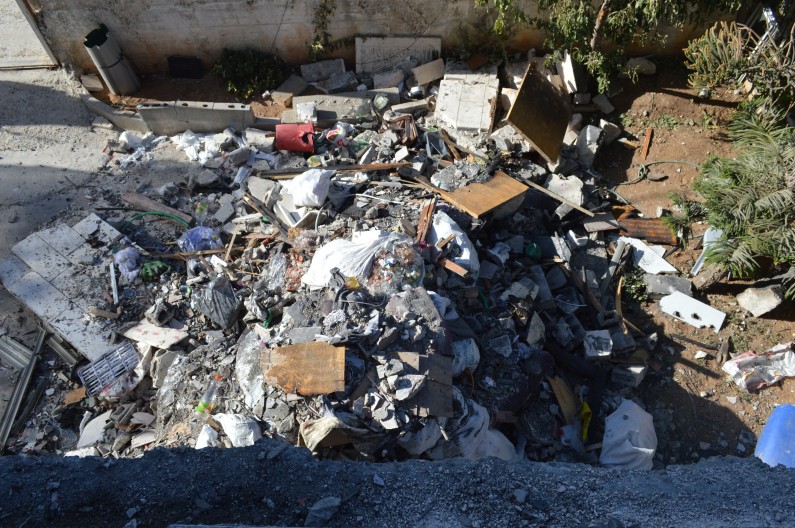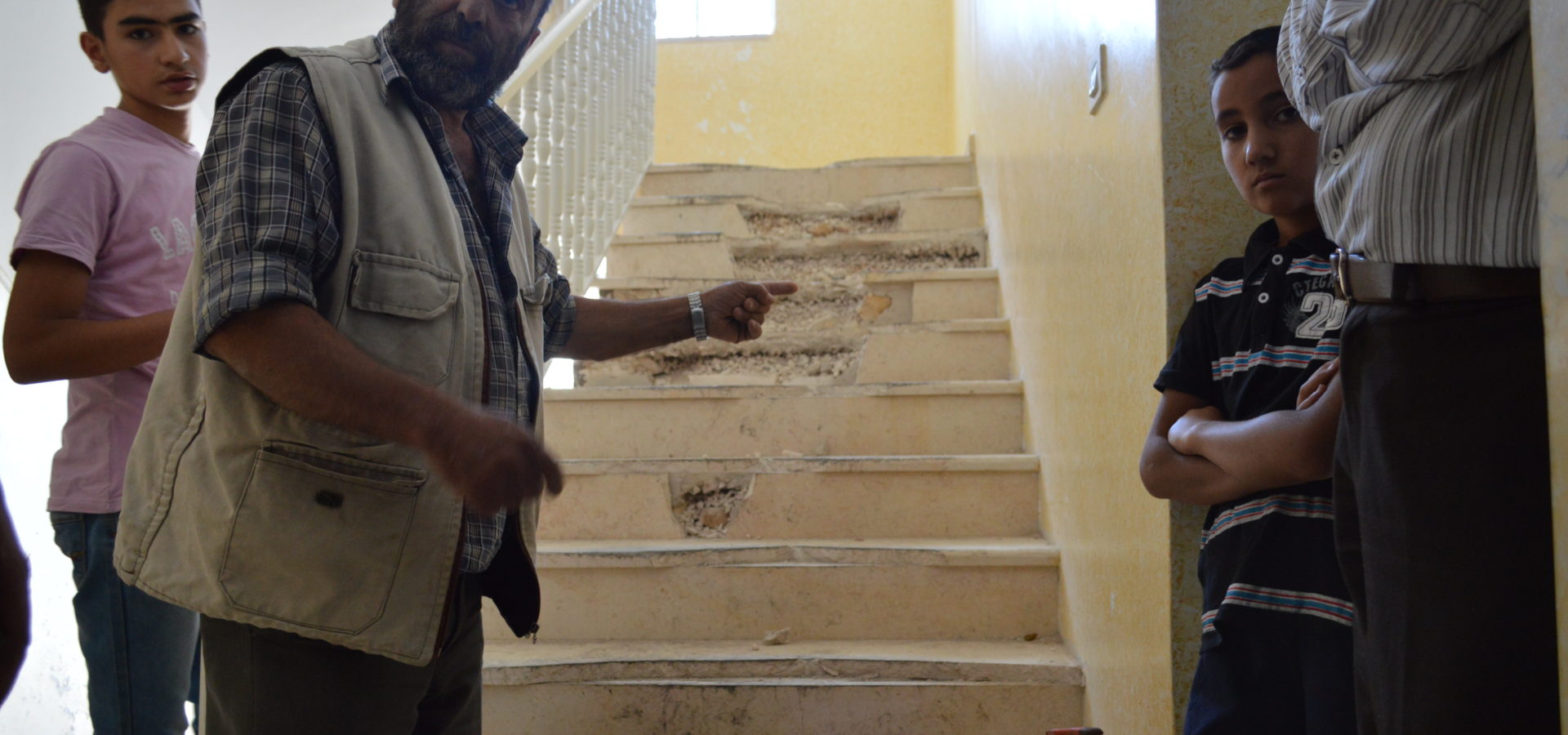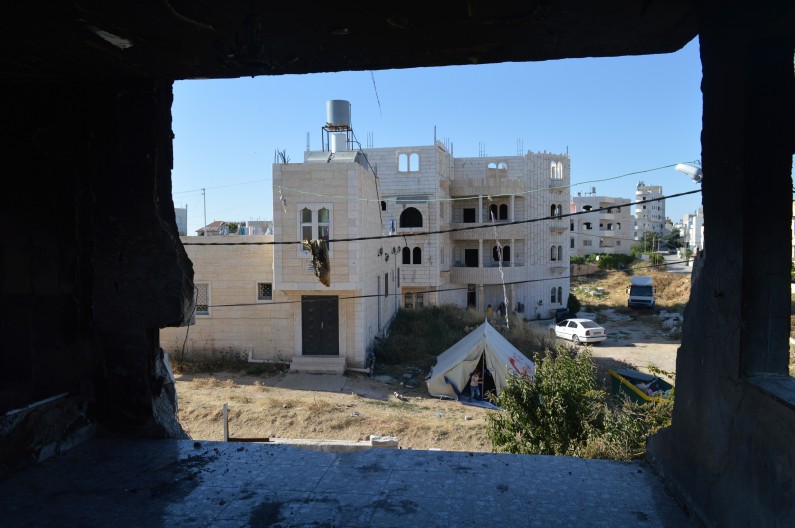
BETHLEHEM, occupied Palestinian territories — Farah Baker is familiar with the sound of bombings. At 16, Farah can easily pinpoint the difference between an F-16 missile overhead and a naval warship’s rocket. After all, she’s been hearing them all her life.
Farah lives in the besieged Gaza City, right behind Al-Shifa Hospital, where her father works as a doctor.
“The drones are flying intensively all the time. The F-16 sounds appear everywhile, then bombs from drones and Apaches. But the drones and F-16’s and warships can be heard all the time,” Farah told MintPress News.
Israel’s latest assault on Gaza, known as Operation Protective Edge, started on July 7. The death toll has risen by the hour. Farah hears the sirens of ambulances coming into and leaving the hospital all day and all night.
While Israel says the operation is in response to Hamas’ homemade rockets fired at Israel, which have resulted in zero deaths, Palestinian President Mahmoud Abbas has characterized the bombings as collective punishment.
“What’s happening now is a war against the Palestinian people as a whole and not against the factions,” Abbas said in a televised statement during a Palestinian Authority crisis meeting in Ramallah last week. “We know that Israel is not defending itself, it is defending settlements, its main project.”
Israel’s current military campaign in Gaza has already come under scrutiny for targeting the entire civilian population in the besieged strip. The area is home to 1.8 million people, 80 percent of which are United Nations-registered refugees, and over 50 percent are under 18. As the Gaza Strip is only 28 miles long and 8 miles wide — in reality, Israeli buffer zones make it much shorter and narrower — the area is one of the most densely populated areas on Earth.
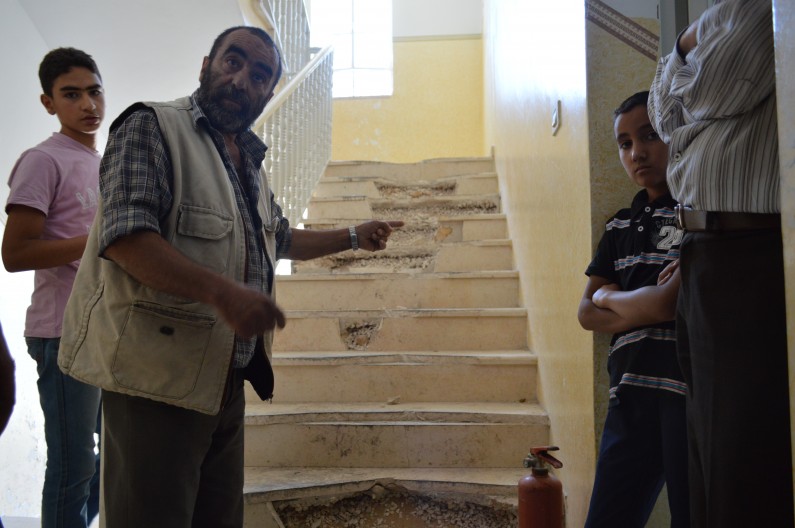
Despite this, Israeli airstrikes have been aimed at moving vehicles in busy streets, civilian houses in crowded areas and packed refugee camps. Even with sophisticated military equipment, choosing targets within such crowded spaces will always result in civilian casualties. Israeli Prime Minister Benjamin Netanyahu and other Israeli officials have defended Israel’s actions, saying Hamas is the party responsible for the high number of civilian deaths because it has allegedly fired rockets from civilian areas.
However, Maen Rashid Areikat, the Palestinian Liberation Organization’s chief representative to the United States, disagrees that Hamas allegedly firing from civilian areas excuses the high civilian casualty rates in Gaza.
“Gaza is very densely populated; now there may be instances that there has been rockets fired from within [civilian] buildings, but this is just a surprise that you kill 170 people and wounded 1,200 in less than a week?” Areikat said on CBS’ “Face the Nation”on Sunday. “I don’t think so.”
A broad scope
Israel claims to only aim for Hamas targets, but that doesn’t necessarily narrow the scope. As the democratically-elected government of Gaza, a Hamas target could include any number of political, social and education buildings. However, some targets have no governmental association at all, such as the packed beachside cafe that was bombed on July 9 during the screening of a World Cup semi-final game. Nine people were killed and 15 others injured.
The home of the al-Kaware family was hit by an airstrike on July 8, killing seven people, including two children under the age of five. According to the UN’s Office for the Coordination of Humanitarian Affairs, of the 144 Palestinians killed from the beginning of Israel’s latest assault on July 7 to July 11, 77 percent have been civilians.
As Israel’s military operation continues to target civilian homes, Israel has defended its actions as legitimate under international law, citing alleged military activities within or around those homes.
“Unless the Israeli authorities can provide specific information to show how a home is being used to make an effective contribution to military actions, deliberately attacking civilian homes constitutes a war crime and also amounts to collective punishment against the families,” Philip Luther, director of the Middle East and North Africa Program at Amnesty International, said in a statement.
Farah and her family hold no political associations, but she says she fears that her home could be targeted by an airstrike at any moment. Within the first few days of Operation Protective Edge, military strikes have landed close enough to her home for her to see.
“Yesterday, while I was going to pray al-Fajr [dawn prayer], Israel threw four rockets just one kilometer away from my home. I felt like it was going to break the windows the way they shook. Everything was shaking, even vases, even my bed, everything,” Farah said. “My parents woke up suddenly and came to my room because my little sister was screaming and shouting. She drank some water and slept while tears were on her cheeks and today she woke up so nervous and angry and keeps crying.”
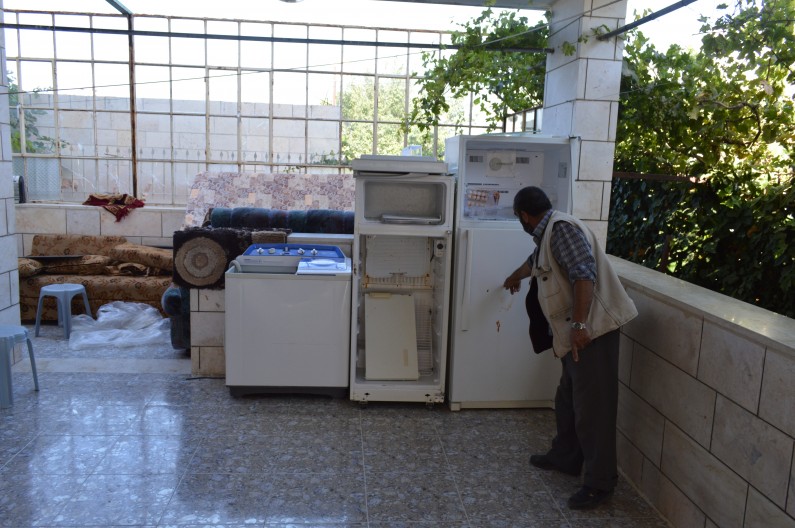
Farah believes her family and many like them are being collectively punished for the kidnapping and murder of three Israeli teens in the occupied West Bank. After their bodies were discovered on June 30 near Hebron, Israel pinned the blame on the entire Hamas establishment, despite the widely regarded notion that any kidnapping attempt would not have been under the orders of Hamas leadership in Gaza, but rather carried out by a rogue cell in the occupied West Bank. However, Israel’s military forces continue to target and bomb the crowded Gaza Strip.
In 2009 Israel’s Operation Cast Lead resulted in the deaths of 1,387 Palestinians, including 320 minors. Israel also targeted the whole of the Gaza Strip again with Operation Pillar of Defense in 2012, leaving 167 Palestinians dead over the course of eight days.
Targeting families
Continued military occupation and occupation structures have been denounced as a form of collective punishment on millions of Palestinians, and it’s not limited to the Gaza Strip. Ten years ago this week, the International Court of Justice released an advisory opinion stating that the Separation Wall was, in fact, an illegal structure that was not only disproportionate to Israel’s security needs, but also a form of collective punishment affecting the Palestinian population on the occupied West Bank.
On the ground, meanwhile, organizations such as B’Tselem, an Israeli human rights group, and OCHA have documented numerous aggressive and destructive night raids on cramped refugee camps, indiscriminate killings, housing demolitions and long waits with humiliating searches at Israeli military checkpoints. For years, such actions have occurred on a daily basis.
The treatment of the Abu Aisha family has prompted some of the most recent outcries against Israel’s practice of carrying out collective punishment in the occupied West Bank.
Mohamed Abu Aisha has a large tent in his front yard that was donated to his family by a local humanitarian organization. His nephew, Amer Abu Aisha, is one of the two suspects Israel has identified in the kidnapping and killing of the three Israeli teens, and because of this, the entire family has been punished. Amer Abu Aisha’s house is attached to three other homes within a large complex where the entire extended family lives. All four homes have been leveled by the Israeli Defense Forces, while the home of Amer Abu Aisha was completely destroyed by an IDF bomb.
“They destroyed everything in the house, in everyone’s homes. They broke the stairs, they broke every basin, every mirror, every object,” Mohamed told MintPress. “There must have been around 50 soldiers, maybe more. They then locked us all in a room downstairs and the next thing we knew we could hear a bomb going off. The whole house was shaking, we didn’t know what was happening, they blew off a whole wall.”
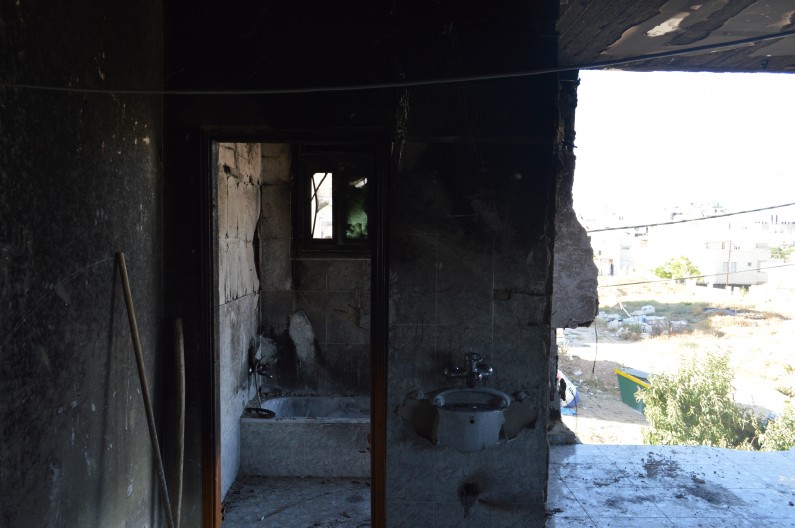
The homes of Mohamed and his extended family are destroyed, everything in them ruined. Soldiers return to harass the family every day. Mohamed told MintPress that he doesn’t understand why the whole family is being targeted when Israel is just after his nephew, although he also believes wholeheartedly that is nephew is innocent.
Over 550 Palestinians were arrested during Israel’s Operation Brother’s Keeper, the military campaign launched in the occupied West Bank to search for the three kidnapped Israeli teens. Many of the arrests and night raids documented by MintPress and other organizations were not affiliated to Hamas, though Israel pinned Hamas as the responsible party early on in its campaign. People’s homes were raided, and so were the homes of their extended families. Items were destroyed. Money was reported stolen.
Waiting and hoping
Back in Gaza City, Farah remains in limbo. At only 16, her memories of childhood are already strung together by deadly Israeli attacks. For now, she waits and hopes that her house won’t be hit, but she feels that as the days go on, more civilian homes will fall victim to airstrikes.
“They’re done with bombing military sites, so now they have turned to civilian houses.” Farah said.
Although politicians in Israel may vehemently disagree with her thoughts, having lived under devastating and deadly rocket fire all her life, and with the memories of Operation Cast Lead in 2009 and Operation Pillar of Defense in 2012 still vivid, her thoughts and worries are based heavily on past experience. She and her family, she says, wait every night, hoping the next bomb won’t be headed toward their home.
“So many bombs light up the whole area,” Farah said. “Since the last bombs I started hating Israel much more.”
